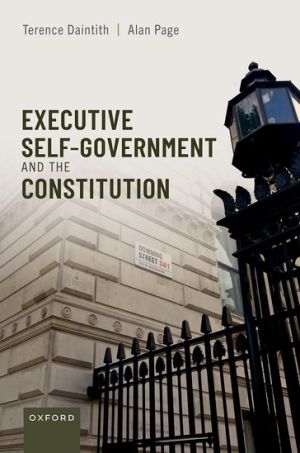
Over the last 25 years, UK governments have faced a series of challenges and changes of an intensity almost unprecedented in peacetime: some thrust upon them, some of their own making. Developments whose impact on the executive's place in the constitution are analysed in this volume include the global financial crisis in 2007/08, the 1997 Labour Government's programme of constitutional reform, the unexpected referendum result on withdrawal from the EU in 2016, the COVID-19 pandemic, the UK's withdrawal from the EU in 2020, and the energy and cost of living crisis that followed Russia's invasion of Ukraine in 2022.
The volume's conception of the UK's executive government is of an autonomous actor within the constitution, endowed with significant discretion in relation to its own organisation and modes of operation. By examining how governments have responded to those developments—through the reform of executive institutions and their deployment of the essential governmental resources of people, money, laws, and information—, Executive Self-Government and the Constitution opens a window on the internal operations of the contemporary executive and permits an assessment of the resilience of its key constitutional characteristics.
Building on the analysis of their original leading work The Executive in the Constitution (OUP 1999), Executive Self-Government and the Constitution assesses how the economic and political turbulence faced by successive governments since 1997 has affected its key constitutional features.